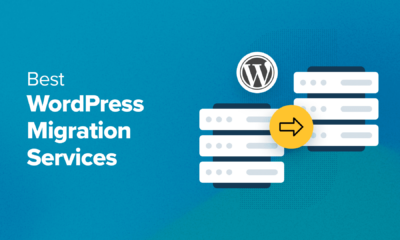The new app is called watchGPT and as I tipped off already, it gives you access to ChatGPT from your Apple Watch. Now the $10,000 question (or more accurately the $3.99 question, as that is the one-time cost of the app) is why having ChatGPT on your wrist is remotely necessary, so let’s dive into what exactly the app can do.
NEWS
Google’s John Mueller Answers if MUM Makes SEO Obsolete

Google’s John Mueller responded to a Reddit discussion about whether MUM will make SEO obsolete. Given that the purpose of MUM is to provide answers from multiple languages, answers not currently answered by ten blue links, it’s not an unreasonable question to ask.
Google MUM
MUM is an acronym for Multitask Unified Model. It’s a way of answering complex questions that cannot be answered with just a few sentences in a featured snippet or with current technology.
Google refers to MUM as a significant event in the evolution of search technologies, calling it a milestone that is 1,000 times more powerful than the BERT algorithm.
Is MUM SE-Un-optimizable?
One astounding way MUM solves answers is to use the total sum of knowledge about a topic, even if that knowledge is in a different language.
Google said that it can source answers from across different languages. And that makes sense because answers in other languages may be more authoritative that the limited content produced in your local language.
In the recipe niche, an article about how to make a paella that was written in Spanish by a Spanish chef might be considered more authoritative than an article written by a stay at home mom in California who has little to no lived experience with Spanish cooking.
Who would you trust for an authentic Spanish recipe? The stay at Home Mom in California or the fourth generation Spanish chef?
Google uses the example of using native Japanese content for search queries related to hiking Mount Fuji, which can also drill down to subtopics that only a native might know about.
Keyword Based SEO?
Another feature is that MUM can find answers to questions that are a mix of images and text and provide answers to that mix.
How would an SEO optimize an answer to a question that is partially in the form of an image?
An image is not a word. It’s a representation of a thing, an entity.
Here’s what Google says:
“Eventually, you might be able to take a photo of your hiking boots and ask, “can I use these to hike Mt. Fuji?”
MUM would understand the image and connect it with your question to let you know your boots would work just fine. It could then point you to a blog with a list of recommended gear.”
In the MUM search paradigm, optimizing for keywords seems to break down because MUM is answering a complex question comprised of multiple subtopics.
Here’s how Google’s announcement explains it:
“Since MUM can surface insights based on its deep knowledge of the world, it could highlight that while both mountains are roughly the same elevation, fall is the rainy season on Mt. Fuji so you might need a waterproof jacket.
MUM could also surface helpful subtopics for deeper exploration — like the top-rated gear or best training exercises — with pointers to helpful articles, videos and images from across the web.”
It does not seem unreasonable to conclude that the above described MUM search result is drawn from multiple websites from different languages.
And if that’s the case, how would you even visualize which website is top ranked for a MUM search query when the query draws from multiple “helpful subtopics?”
- If your primary language is English and part of your answer is from a Japanese website, is the Japanese site considered top ranked?
- Will the blog post with the article about “top-rated gear” be the winner?
- Or is the winner of that search query the publisher of the “best training exercises” article?
- Can all five sites, one of which is in a foreign language, be considered top ranked?
- Will MUM redefine what it means to be top ranked for certain search queries?
Sourcing answers from multiple websites seems like selecting five winners and breaking off five pieces of the trophy for them to take home with them.
If we accept the scenario of five sites have the opportunity to be top ranked, how would you, as an SEO, attempt to optimize for that?
Not an Unreasonable Question
We don’t know what MUM will look like once it rolls out in months or years as Google’s announcement said. We’re limited to drawing conclusions from the limited information that Google has shared.
And what they announced does not seem to fit the contours of search results as we know it.
Does that mean SEO has to adapt?
John Mueller Comments on Impact of MUM on SEO
Google’s John Mueller responded to the Reddit thread by affirming that SEO will always be needed.
Mueller’s answer referenced a joke about keyword stuffing:
“How many SEO experts does it take to change a light bulb, lightbulb, light, bulb, lamp, lighting, switch, sex, xxx, hardcore”
This is Mueller’s response:
“I don’t really see how this would reduce the need for SEO.
Things always evolve.
Remember the SEO joke about changing the lightbulb? None of that’s been necessary for a while now, which is due to developments like these, and yet, people still have enough to do as SEO.”
The Work of SEO Evolves
Mueller’s right. The nature of the work associated with SEO is under constant evolution. Some in the SEO community have a hard time changing and continue clinging to the idea of ranking for search results comprised of ten blue links.
But the truth is that the age of ten blue links has been replaced by a hybrid that is responsive to the context of the question being asked.
Google’s MUM algorithm could be said to be a way to respond to a search question with a complex context.
If the answer is best served with content originally written in Japanese or Spanish, then that may be a part of the answer.
At this point in time, given that there is no actual product, it may be premature to begin shouting that the sky is falling.
The prudent thing may be to reserve judgment until Google actually rolls out a product.
Citation
Facebook Faces Yet Another Outage: Platform Encounters Technical Issues Again

Uppdated: It seems that today’s issues with Facebook haven’t affected as many users as the last time. A smaller group of people appears to be impacted this time around, which is a relief compared to the larger incident before. Nevertheless, it’s still frustrating for those affected, and hopefully, the issues will be resolved soon by the Facebook team.
Facebook had another problem today (March 20, 2024). According to Downdetector, a website that shows when other websites are not working, many people had trouble using Facebook.
This isn’t the first time Facebook has had issues. Just a little while ago, there was another problem that stopped people from using the site. Today, when people tried to use Facebook, it didn’t work like it should. People couldn’t see their friends’ posts, and sometimes the website wouldn’t even load.
Downdetector, which watches out for problems on websites, showed that lots of people were having trouble with Facebook. People from all over the world said they couldn’t use the site, and they were not happy about it.
When websites like Facebook have problems, it affects a lot of people. It’s not just about not being able to see posts or chat with friends. It can also impact businesses that use Facebook to reach customers.
Since Facebook owns Messenger and Instagram, the problems with Facebook also meant that people had trouble using these apps. It made the situation even more frustrating for many users, who rely on these apps to stay connected with others.
During this recent problem, one thing is obvious: the internet is always changing, and even big websites like Facebook can have problems. While people wait for Facebook to fix the issue, it shows us how easily things online can go wrong. It’s a good reminder that we should have backup plans for staying connected online, just in case something like this happens again.
NEWS
We asked ChatGPT what will be Google (GOOG) stock price for 2030

Investors who have invested in Alphabet Inc. (NASDAQ: GOOG) stock have reaped significant benefits from the company’s robust financial performance over the last five years. Google’s dominance in the online advertising market has been a key driver of the company’s consistent revenue growth and impressive profit margins.
In addition, Google has expanded its operations into related fields such as cloud computing and artificial intelligence. These areas show great promise as future growth drivers, making them increasingly attractive to investors. Notably, Alphabet’s stock price has been rising due to investor interest in the company’s recent initiatives in the fast-developing field of artificial intelligence (AI), adding generative AI features to Gmail and Google Docs.
However, when it comes to predicting the future pricing of a corporation like Google, there are many factors to consider. With this in mind, Finbold turned to the artificial intelligence tool ChatGPT to suggest a likely pricing range for GOOG stock by 2030. Although the tool was unable to give a definitive price range, it did note the following:
“Over the long term, Google has a track record of strong financial performance and has shown an ability to adapt to changing market conditions. As such, it’s reasonable to expect that Google’s stock price may continue to appreciate over time.”
GOOG stock price prediction
While attempting to estimate the price range of future transactions, it is essential to consider a variety of measures in addition to the AI chat tool, which includes deep learning algorithms and stock market experts.
Finbold collected forecasts provided by CoinPriceForecast, a finance prediction tool that utilizes machine self-learning technology, to anticipate Google stock price by the end of 2030 to compare with ChatGPT’s projection.
According to the most recent long-term estimate, which Finbold obtained on March 20, the price of Google will rise beyond $200 in 2030 and touch $247 by the end of the year, which would indicate a 141% gain from today to the end of the year.
Google has been assigned a recommendation of ‘strong buy’ by the majority of analysts working on Wall Street for a more near-term time frame. Significantly, 36 analysts of the 48 have recommended a “strong buy,” while seven people have advocated a “buy.” The remaining five analysts had given a ‘hold’ rating.

The average price projection for Alphabet stock over the last three months has been $125.32; this objective represents a 22.31% upside from its current price. It’s interesting to note that the maximum price forecast for the next year is $160, representing a gain of 56.16% from the stock’s current price of $102.46.
While the outlook for Google stock may be positive, it’s important to keep in mind that some potential challenges and risks could impact its performance, including competition from ChatGPT itself, which could affect Google’s price.
Disclaimer: The content on this site should not be considered investment advice. Investing is speculative. When investing, your capital is at risk.
NEWS
This Apple Watch app brings ChatGPT to your wrist — here’s why you want it

ChatGPT feels like it is everywhere at the moment; the AI-powered tool is rapidly starting to feel like internet connected home devices where you are left wondering if your flower pot really needed Bluetooth. However, after hearing about a new Apple Watch app that brings ChatGPT to your favorite wrist computer, I’m actually convinced this one is worth checking out.
-

 PPC6 days ago
PPC6 days agoHow 6 SEO Experts Are Navigating Google Update Chaos
-

 SEARCHENGINES6 days ago
SEARCHENGINES6 days agoBing Search Testing Removing Cache Link From Search Results
-

 MARKETING6 days ago
MARKETING6 days ago60 Remote Work Stats to Know in 2024
-

 WORDPRESS5 days ago
WORDPRESS5 days ago10 WordPress Influencers to Follow in 2024 – WordPress.com News
-

 WORDPRESS6 days ago
WORDPRESS6 days ago8 Best WordPress Migration Services (Compared)
-

 MARKETING5 days ago
MARKETING5 days agoFeeling Stuck: What to Do When You Don’t Know What to Do
-

 SEO7 days ago
SEO7 days agoGoogle Explains How It Chooses Canonical Webpages
-

 SEARCHENGINES4 days ago
SEARCHENGINES4 days agoMore Google March 2024 Core Update Ranking Volatility













